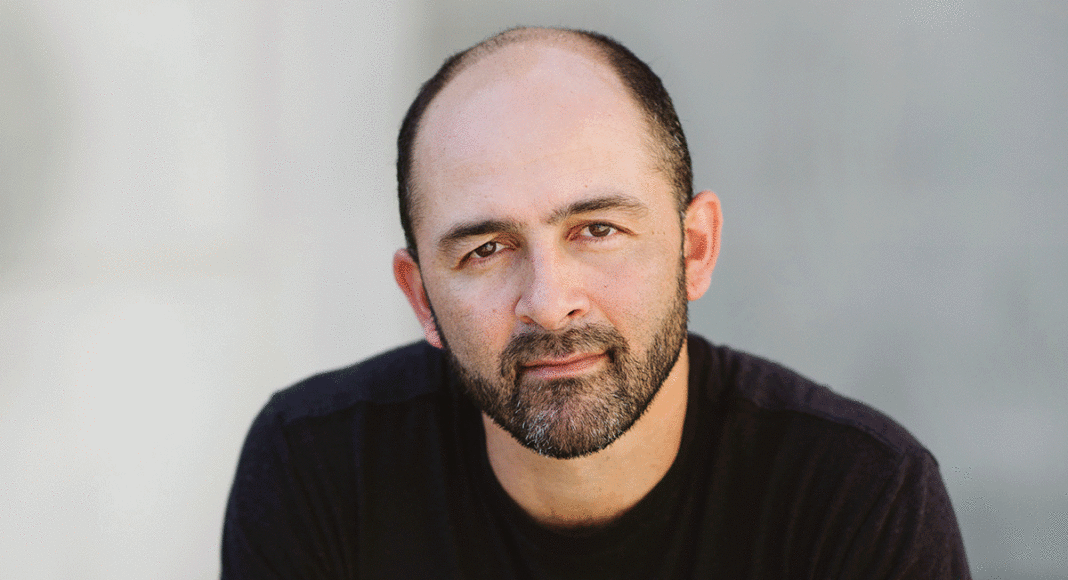Franz Kafka and Philip Roth walk into a bar … that could be the beginning of a terrific joke. Or it could be the beginning of a remarkable post-millennial novel by Berkeley journalist Michael Levitin, in which the author and protagonist of Disposable Man retraces the steps of his Russian Jewish ancestors in a circuitous journey to the east. From the book’s spectacular opening pages to the raw bittersweet ending, Levitin’s novella bristles with restless speculation about male identity in the #MeToo milieu.
Max Krumm is a disaffected American journalist living in today’s Berlin, or rather he is killing time in Berlin until he figures out a way to comprehend his identity, and/or retrace the steps his family took on their flight from the Nazis during the second war. Even better, Levitin’s protagonist does both in this odyssey that weaves back and forth in time, tracking a mysterious postcard from Aunt Josephine before she was shipped off to Siberia.
After much hilarious drinking, smoking and kvetching with three equally disaffected artist buddies, Krumm—along with Alan the occasional journalist, handsome Easy Wayne and Robert the ex-pat Brit—pack weed, beer and bicycles onto a train for Poland and a long weekend of debauched soul searching.
Levitin knows his territory. Five years as a journalist in Berlin before returning to his native Bay Area, plus his vantage point at the edge of the millennial generation, gives him an astringent perspective on post-feminism, late capitalism, global unemployment, and the overall ennui of males who have yet to find traction in a chaotic Zeitgeist.
The voice of Disposable Man is intimate and vivid as Levitin spins the saga of one man’s journey to set the family record straight. With his tongue firmly in his cheek, the author probes the irony of being Jewish in Berlin.
“It’s still too shocking that a Jew should just turn up and put down roots in this capital of capitals—in this inferno of his past,” the author writes. “A Jew cannot just simply come to Berlin: he needs an alibi.” Levitin goes on to explain that, “Jews are now coming to and staying and living in Berlin: because Berlin has had the madness boiled out of it. Berlin is exhausted.” And so are the ex-pats, careers temporarily comatose, who meet at their favorite bar to take shots, smoke weed and complain about women.
Krumm and co.’s long weekend of talking, fishing, swimming, drinking, smoking, and laughing magically morphs into a moment of Joyce’s Finnegan’s Wake. (And yes, this is a daring and courageous gamble on the author’s part.) It ends with a bonfire, at which the quartet, now gone completely wild and feral, howl at the flames until dawn. The bonfire on the Polish riverbank is simultaneously a Viking funeral pyre, a rite of passage and a cremation of four men’s impossible dreams. It is also a ritual grieving for their entire generation, the men who’ve become satellites to a world controlled by women. The Golden Age of bad old masculinity has ended, broken into submission by ascendant Others.
Disposable Man is a compelling male manifesto, an elegy to lost purpose and grip—stunning, angry, smart, funny, and uncomfortably precise. Most remarkable, perhaps, is the fact that this young man’s tale of angst is capable of resonating so richly with a female Baby Boomer. Tears filled my eyes as I read the last pages. A tour de force, crackling with humor and defiance. Continuous shots of vodka without a hangover.
Michael Levitin will discuss ‘Disposable Man’ with poet and essayist Stephen Kessler on March 15 from 7-9 p.m. Felix Kulpa Gallery, 107 Elm St., Santa Cruz.















Extraordinary review of astonishing book.